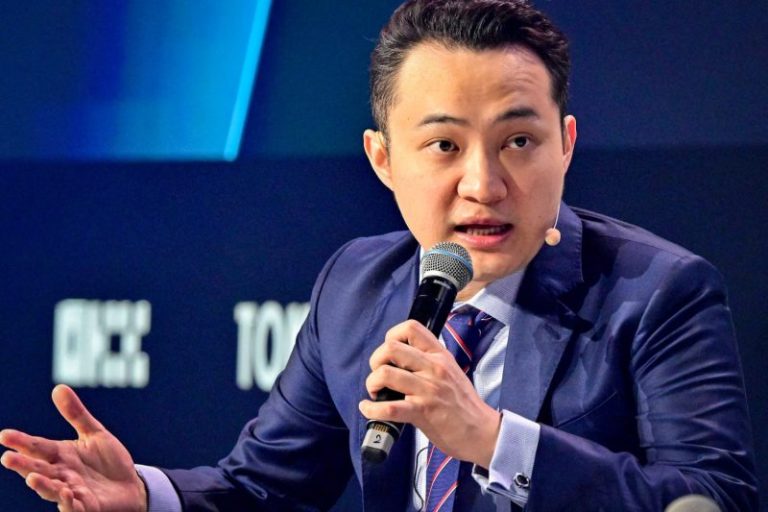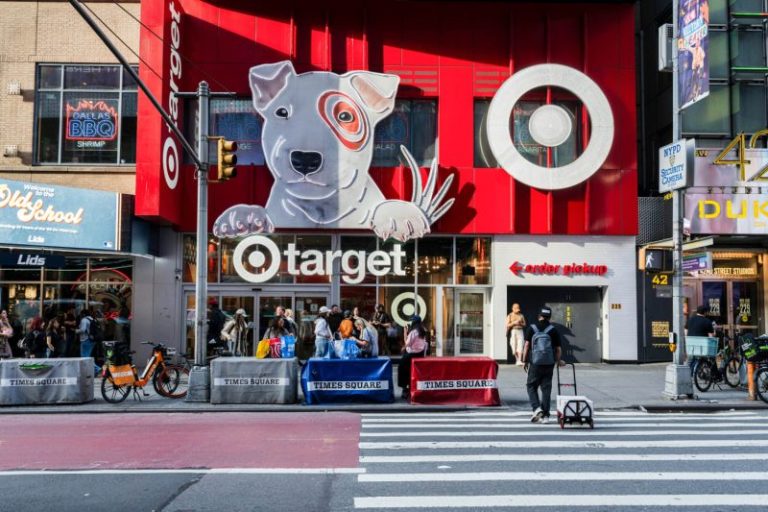Raising prices on consumers to cover the costs of President Donald Trump’s tariffs will be Target’s ‘very last resort,’ CEO Brian Cornell said Wednesday.
The remarks came as Target reported weaker-than-expected sales in its first quarter and cut its full-year forecast. The retailer, whose business hasn’t fared as well against rivals better known for bargain prices, has “many levers to use in mitigating the impact of tariffs,” Cornell said.
Major retailers appear to be treading cautiously around the question of price hikes after Trump slammed Walmart last weekend for warning that shoppers could pay more due to tariffs. In the days since, Target, Lowe’s and Home Depot have each made carefully worded remarks about the potential for higher prices or minimized discussion of tariffs altogether.
Walmart said last week that it customers would likely start seeing some prices climb as soon as this month because tariffs have created a more “challenging environment to operate in.” While presidents typically avoid appearing to dictate individual companies’ strategies, Trump castigated Walmart on his social media platform, demanding that it “EAT THE TARIFFS” and adding, “I’ll be watching, and so will your customers!!!”
“We’ll keep prices as low as we can for as long as we can given the reality of small retail margins,” Walmart told NBC News Saturday in response to Trump’s post. Days later, Home Depot all but ruled out near-term price hikes, citing its scale and supply-chain arrangements. Lowe’s barely mentioned tariffs when it reported earnings Wednesday but said just 20% of what its shoppers buy now comes from China, after years of diversifying its sourcing.
For Target, Cornell emphasized that tariffs were just one factor in a series of “massive potential costs” the company is grappling with. He pointed to consumer uncertainty over the direction of the economy and a high-profile backlash over Target’s watering down of its diversity, equity and inclusion policies. The retailer had expanded those initiatives after police murdered George Floyd in its hometown, Minneapolis, five years ago this weekend.
Target has rolled out discounts over the past year to lure inflation-weary shoppers and touted plans to expand its third-party marketplace to offer a broader range of items. To deal with new trade policy challenges, it’s negotiating with vendors, reassessing its product lineup and adjusting its foreign supply chain, Chief Commercial Officer Rick Gomez told investors Wednesday.
‘Half of what we sell comes from the U.S.,’ he said, adding that Target is expanding production in the United States and in other countries outside of China, whose exports currently face a 30% import tax.
Target’s stock fell more than 5% Wednesday during a broader market sell-off.
Some major companies that sell products at leading retailers have raised prices or said they’re considering doing so, including toolmaker Stanley Black & Decker, consumer products giant Procter & Gamble, sportswear brand Adidas and toy maker Mattel.
Mattel, the maker of Barbie dolls, has also come under fire from Trump, who threatened to hit it with 100% tariffs this month, after it signaled price hikes were on the table.
Big companies generally have more latitude to handle cost increases and other economic headwinds than their smaller counterparts. The U.S. Chamber of Commerce and independent business owners have warned that tariffs threaten to snuff out many small operators, chipping away at the competition for already large corporate rivals.
The National Retail Federation, which represents some of the biggest retailers in the country, has emphasized that risk in lobbying against new levies. “Small and medium-sized businesses will be disproportionately affected by the tariffs, with many saying they will have to raise prices or shut down,” it says on its website.
So far, “consumers are still spending despite widespread pessimism fueled by rising tariffs,” NRF Chief Economist Jack Kleinhenz said in a statement last week after retail sales eked out a modest 0.1% rise in April.
But even the largest multinational companies aren’t insulated from tariff-driven uncertainty, the NFR and industry analysts say. Like Target, several large firms have revised or scrapped their financial outlooks in recent weeks, unsure how the White House’s trade agenda will affect them. Nike plans to increase prices on several items between now and June 1, a person familiar with the matter told NBC News on Wednesday.
Not every retailer is voicing tariff jitters. The parent company of T.J. Maxx and Marshalls beat sales estimates Wednesday and maintained its full-year forecast. The discounter, which buys unsold merchandise from other brands that have already paid tariffs on much of it, said it expects to be able to handle the pressure from higher import taxes.
Sportswear brand Canada Goose, which makes popular winter jackets, also exceeded Wall Street expectations. But it joined the slew of companies pulling their forecasts for the rest of the year, citing an “unpredictable global trade environment.”
This post appeared first on NBC NEWS






